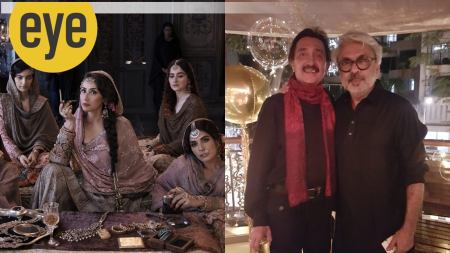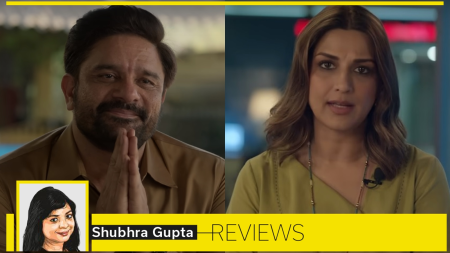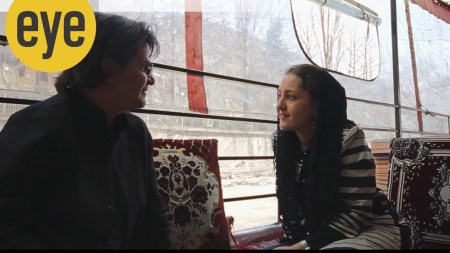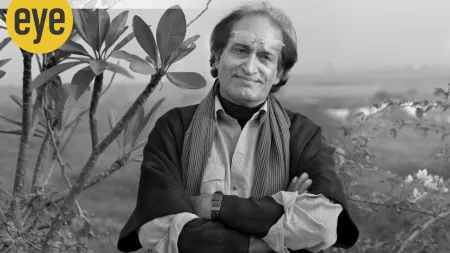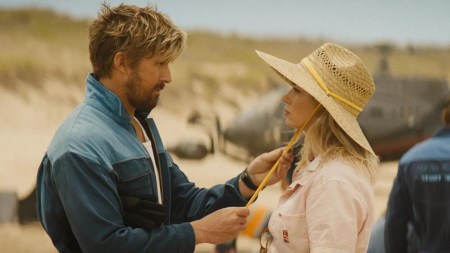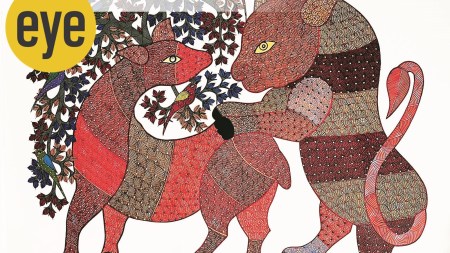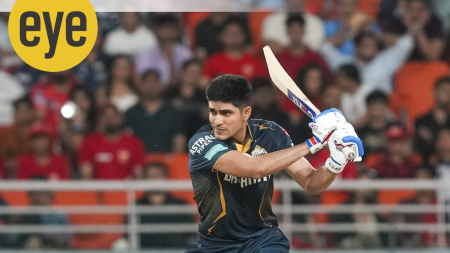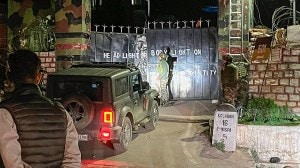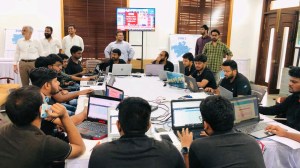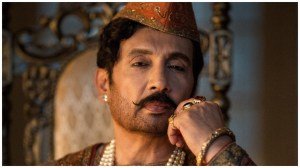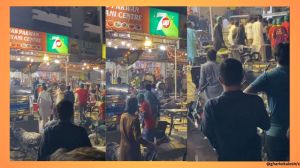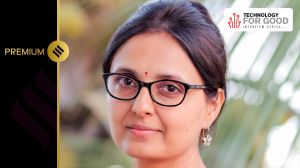- India
- International
Hardlook: Across the table—‘The whole world comes here, some difficulty understandable’
On June 21, The Indian Express spent the day with Devi and trailed her youngest son Hemraj Chauhan (34) at the OPD registration counter of the cancer wing to understand the challenges patients face at the country's most prestigious Centre-run hospital.
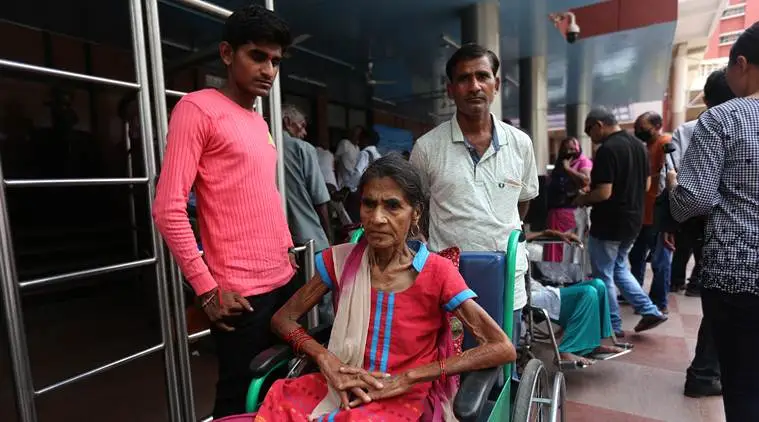 Kamalesh Devi (70), who has advanced breast cancer,waits to see the doctor. (Express photo: Tashi Tobgyal)
Kamalesh Devi (70), who has advanced breast cancer,waits to see the doctor. (Express photo: Tashi Tobgyal)
It could well be an unremarkable journey between a western Uttar Pradesh hamlet and the national capital, separated by a few hundred kilometres and seven hours — for a day job, college admission, or a wedding.
Except, the destination for this particular journey is the cancer wing of AIIMS. And the traveller a patient of advanced stage breast cancer, 70-year-old Kamalesh Devi.
On June 21, The Indian Express spent the day with Devi and trailed her youngest son Hemraj Chauhan (34) at the OPD registration counter of the cancer wing to understand the challenges patients face at the country’s most prestigious Centre-run hospital.
The arrival
A resident of Bijnor district’s Mirza Alipur village, Devi left home around 6.30 am Friday, covered around 200 km in a hired car, and reached AIIMS at 1 pm, accompanied by her son Prem Raj Chauhan (45) and grandson Ashish (19).
READ | Hardlook: Patients, patience at AIIMS
It took another two hours for her to get an audience with the on-duty OPD specialist Dr Atul Batra, treating her since January 2019 — the first time she was brought to AIIMS following trips to the hospital’s Rishikesh branch and a few local hospitals.

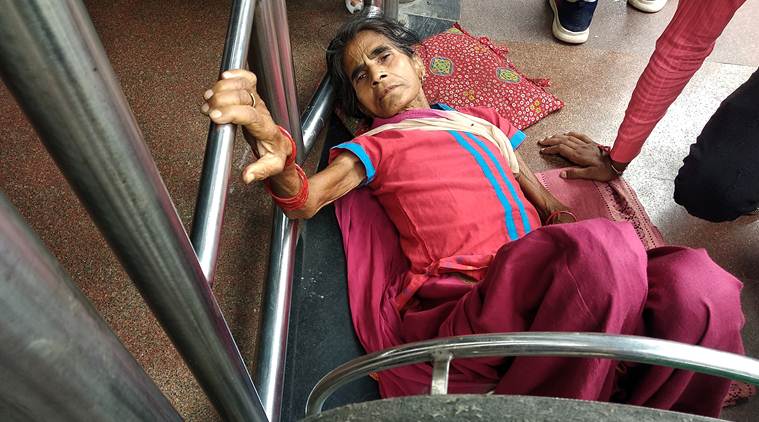 A resident of Bijnor district’s Mirza Alipur village, Devi left home around 6.30 am Friday, covered around 200 km in a hired car, and reached AIIMS at 1 pm, accompanied by her son Prem Raj Chauhan (45) and grandson Ashish (19). (Express photo: Tashi Tobgyal)
A resident of Bijnor district’s Mirza Alipur village, Devi left home around 6.30 am Friday, covered around 200 km in a hired car, and reached AIIMS at 1 pm, accompanied by her son Prem Raj Chauhan (45) and grandson Ashish (19). (Express photo: Tashi Tobgyal)
By the time Devi arrives, the queue outside the cancer OPD has spilled onto the road outside the Dr B R Ambedkar Institute Rotary Cancer Hospital, a seven-storey facility with a capacity of 210 beds, inaugurated by the late PM Atal Bihari Vajpayee in 2003.
It takes around 30 minutes for Ashish to arrange a wheelchair for his grandmother. “They ask for Aadhaar before giving a wheelchair. Or any other valid ID,” he says.
While the medical expenditure isn’t much, Prem points out that travel expenses, Rs 4,000 for a round trip between Bijnor and Delhi, can be prohibitive, especially considering that the family has made seven such trips since January.
“A CT scan cost us Rs 700, bone scan was for Rs 600, while we were not charged for the biopsy. We have no complaints with the healthcare facilities. Saari duniya aa rahi hai idhar, thodi dikkat toh hogi hi (the entire world is coming here for treatment, a little difficulty is nothing unusual),” Prem says.
The wait
Outside, the temperature is within touching distance of 40 degrees Celsius. But Devi has nowhere to go. The waiting hall, with a low ceiling and barely adequate central air-conditioning, is packed with patients and their kin from across India, and even Nepal and Bangladesh.
Having found no space inside, a few families position themselves under ceiling fans outside the waiting hall. Devi’s wheelchair sits on steps leading to the drinking water taps outside.
She is exhausted, visibly short of breath, and in pain. A few red bangles hang loosely from her hands, the cotton salwar kameez barely fits her, but streaks of grey have failed to overshadow her thick black hair.
But until Hemraj arrives from Gurgaon, where he is employed with the technical team of a private insurance firm, Devi has no option but to wait. “Hemraj handles all the paperwork. He will get the parchi (slip) required for a follow-up appointment,” Prem says.
The unrelenting heat is making Devi nauseous. She has had one round of radiotherapy and since then, she’s been put on medicines, her family says.
At 2.30 pm, she reaches out to Ashish for water, who fills a steel glass they carried along with some namkeen, a pillow, a torn cloth and a bundle of clothes.
Devi fails to take even a sip. “Khana toh dur ki baat (Food is out of question),” Ashish says.
A little later, Devi gestures that she wants to get off the wheelchair and sit on the ground.
Ashish and Prem help her sit on her haunches, reclined against a pillow. A few minutes later, she expresses her desire to lie down, prompting Ashish to lay out the torn piece of cloth.
The queue
The waiting lounge on the ground floor of IRCH is buzzing. Private security guards, equipped with portable microphones for them to be audible, are busy maintaining discipline and order, shouting dos and don’ts every few seconds.
An information desk is to the right, followed by a help desk and 10 counters — for general enquiry, submission of reimbursement forms, collection of certificates, familial cancer care, new cases, old cases, revisits, disbursal of investigation reports, and daycare appointments.
On the left is the ‘board room’, which houses the breast cancer OPD, followed by the chemotherapy unit, the CT scan ward and two toilets.
Since Devi’s case is a revisit, Hemraj walks straight to the counter, which continues to be crowded well after 2 pm as many appointments were rescheduled to Friday in the wake of the recent doctors’ strike.
The slip he is handed reads 92. “But it hardly means anything — patients are not called as per the number. Communication is a major area of concern for patients. Many, especially first-timers, are confused about the counters they should queue up at. Guards are also under a lot of pressure but they should be trained not to act rude and to talk politely, with empathy,” Hemraj says.
At 3.35 pm, the guard stationed inside the board room calls out Devi’s name. Hemraj rushes outside to fetch her, but by the time she is wheeled inside, the guard has shut the door to the OPD. “Aapko jab bulaya gaya aap nahi aaye, ab intezar kijiye, andar bohot bheed hai (You didn’t come when your name was called, now you wait, it is very crowded inside),” the guard says.
Twenty minutes later, the doors open again, and Devi is taken inside.
Buzzing Now
May 05: Latest News
- 01
- 02
- 03
- 04
- 05


